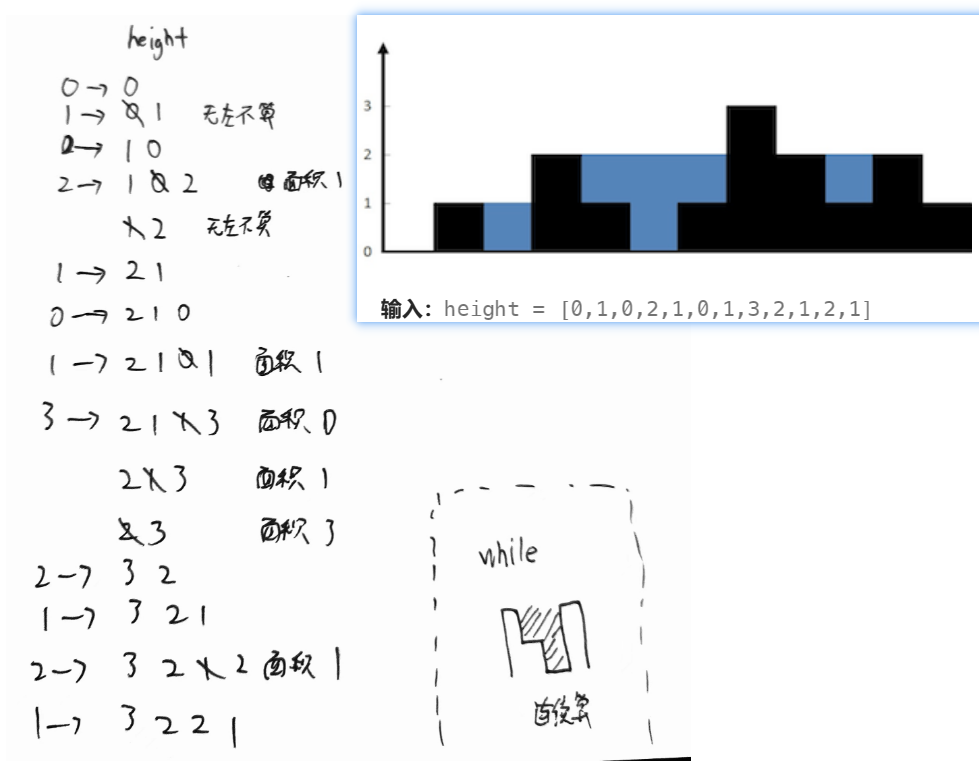Less than 1 minute
11.盛最多水的容器
- 线:
volume = (j-i) * min(arr[j], arr[i]) - 最小边移动,还可以连续移动,让新边更高;
class Solution {
public int maxArea(int[] height) {
int i = 0, j = height.length - 1;
int volume = 0;
while (i < j) {
int min = Integer.min(height[i], height[j]);
volume = Integer.max(volume, (j - i) * min);
if (height[i] < height[j]) {
int left = height[i];
// 让新边更高;
while (height[i] <= left && i < j) {
i++;
}
} else {
int right = height[j];
while (height[j] <= right && i < j) {
j--;
}
}
}
return volume;
}
}
42.接雨水

单调栈。新元素入栈,需要弹出小于它的老元素。
弹出时,以弹出元素为底,以弹出后的新栈底为左。雨水为新墙和老墙围起来且不包括底的部分。
volume = (j-i-1) * (min(arr[j], arr[i]) - bottom)
class Solution {
public int trap(int[] height) {
LinkedList<Data> stack = new LinkedList<>();
int result = 0;
for(int i = 0 ; i < height.length; i++){
while(!stack.isEmpty() && stack.peek().height < height[i]){
Data bottom = stack.poll();
Data nextLeft = stack.peek();
if(nextLeft != null){
int w = i - nextLeft.i - 1;
int h = Math.min(nextLeft.height, height[i]) - bottom.height;
result += w * h;
}
}
stack.push(new Data(height[i], i));
}
return result;
}
}
class Data{
int height;
int i;
Data(int height, int i){
this.height = height;
this.i = i;
}
}